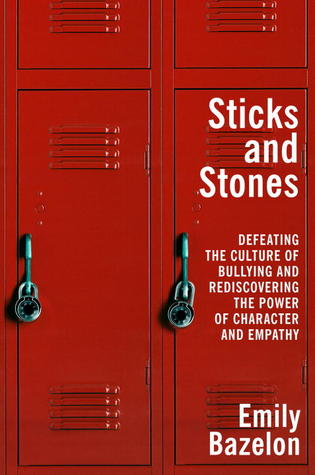 A few things you might not know about bullying: it isn’t on the rise. Bazelon reports that stats have remained constant since the ’70s. And while the numbers are alarming, they don’t suggest an epidemic: somewhere between 10 to 25 per cent of kids report being perpetrators or targets or both. All social problems are complex, but this is mind-bendingly true of bullying—kids’ temperaments, their mental health, the culture of a school, the dynamics in a family—all can factor in to how it plays out. Bazelon likens the parsing of a bullying situation to a crime investigation, with so much evidence to weigh, and so much weighing on getting it right.
A few things you might not know about bullying: it isn’t on the rise. Bazelon reports that stats have remained constant since the ’70s. And while the numbers are alarming, they don’t suggest an epidemic: somewhere between 10 to 25 per cent of kids report being perpetrators or targets or both. All social problems are complex, but this is mind-bendingly true of bullying—kids’ temperaments, their mental health, the culture of a school, the dynamics in a family—all can factor in to how it plays out. Bazelon likens the parsing of a bullying situation to a crime investigation, with so much evidence to weigh, and so much weighing on getting it right.
Many states and provinces have recently introduced anti-bullying laws, but Bazelon counsels against criminalizing the behaviour. In 2010, she made waves with a story she wrote for Slate about Phoebe Prince, a 15-year-old whose suicide led to felony charges against six Connecticut students. Bazelon questioned how much Prince’s problems with depression were overlooked in holding other teens responsible for her death. In the book, Bazelon revisits the case but now includes the voice of Flannery Mullins, one of the accused. Mullins is the kind of young woman you would want your daughter to look up to—confident, compassionate, not easily cowed. She did lash out at Prince (Prince had grown close to Mullins’s boyfriend), but she quickly backed off when teachers intervened. She felt awful when Prince died, but at no point did she consider herself responsible. “She was the angel and we were the devils,” Mullins told Bazelon. “I knew there were layers and layers of this girl, but no one would discuss any of that because they didn’t want to blame the victim.”
Bazelon shies away from blame and doesn’t make prescriptions, instead urging parents to wade into the muck of balancing protection with trust, monitoring their kids’ social lives while giving them leeway to find their own survival strategies. Riveting to read, judiciously thought out, Sticks and Stones is an excellent resource for parents.
Visit the Maclean’s Bookmarked blog for news and reviews on all things literary